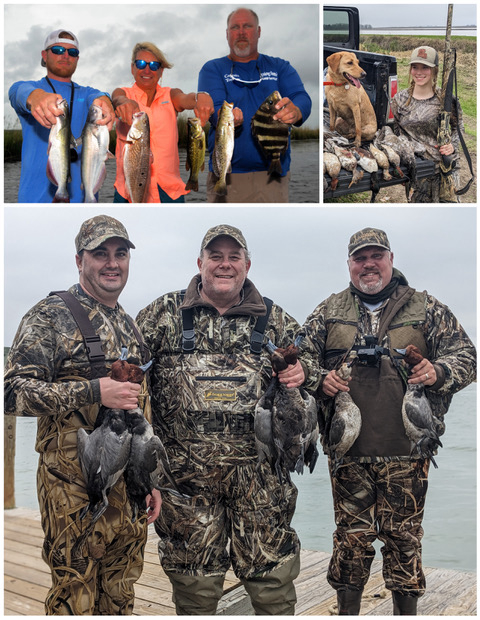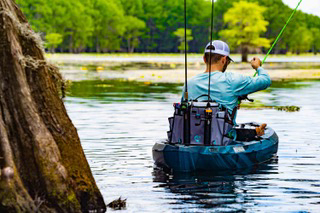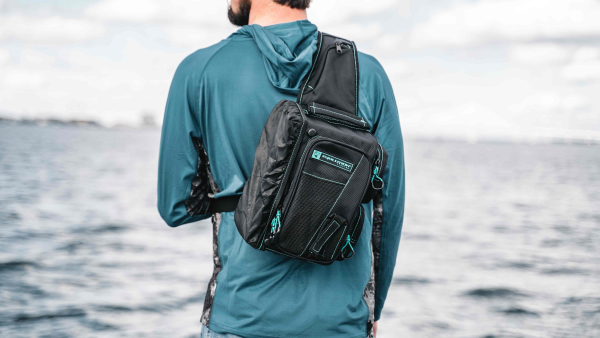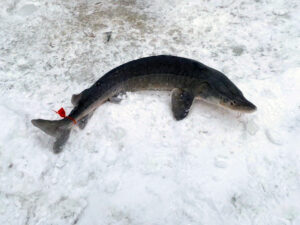Public Stream Access May Improve in the West
By Frank Sargeant
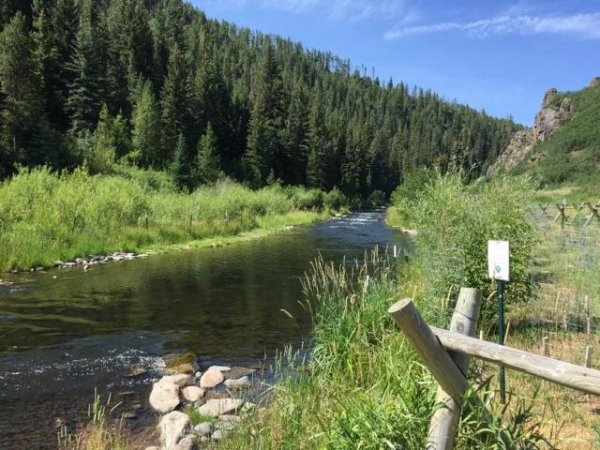
While it’s long been established that anglers can float-fish pretty much all the trout rivers in the west that are large enough to support a raft, fishing that same water on foot is another matter where it crosses private lands, which an awful lot of it does.
In general, anglers have been barred by “No Trespassing” signs at fences and gates, just as hunters are from accessing the vast ranch lands of the West.
But rulings by the U.S. Supreme Court and the New Mexico Supreme Court may put a chink in this access issue, at least for anglers.
In a suit filed in 2017 by the New Mexico chapter of Back Country Hunters and Anglers, the Adobe Whitewater Club and the New Mexico Wildlife Federation, the New Mexico court ruled last year that anglers there can legally walk stream beds and banks “within historic high water marks” of the state’s rivers for fishing access. The U.S. Supreme Court just recently refused to take up a challenge to the ruling, which means it stands as law.
“We hold that the public has the right to fish in public waters and that this right includes the privilege to do such acts as are reasonably necessary to effect the enjoyment of such right,” the New Mexico Supreme Court stated in its unanimous opinion.
The justices also noted that the Game Commission lacked the authority to promulgate the regulations that spurred the case.
Under the process formerly established by the commission, landowners could apply for certification deeming that water flowing through their property was “non-navigable public water.” That would authorized them to close access, and unless they provided someone with written permission people could be cited for trespass if they touched a stream or lake bed on waters closed to access.
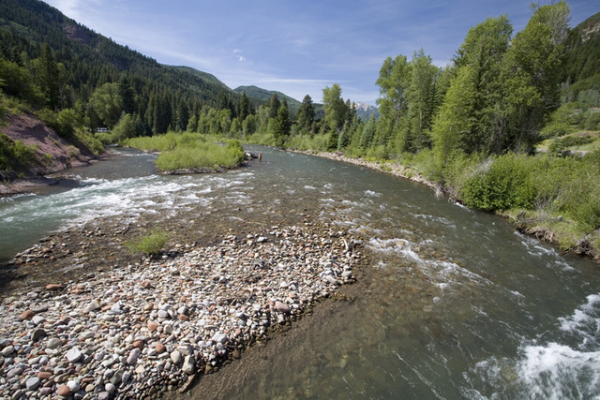
Under the ruling, since the high water mark can be well outside the normal streambed, the rule pretty much opens up access to the state’s trout rivers so long as there’s a way for an angler to get into the streambed without crossing private land, typically done from a bridge or from adjoining public land.
It’s a tremendous boon to anglers and a tremendous aggravation to those who own the land, particularly if they have been leasing out fishing rights to prime waters unfished by the public. (Remember, though, you still can’t drive your vehicle on ranch roads or cross any land at all that’s NOT within the high water marks to get to the water, and Western states are very serious about their trespass laws, so keep that in mind.)
The rejection of the challenge by the U.S. Supreme Court is potentially the most far-reaching decision because it’s likely to inspire anglers in other states to attempt similar access lawsuits and legislation. It could open hundreds of miles of water formerly reserved for wealthy landowners and resort clients. Of course, getting these suits and laws past state supreme courts in Colorado, Montana and the like, where leased trout water is big business, may be no simple matter.
And, there’s no guarantee that while enforcing your access rights you won’t meet up with a John Dutton-Yellowstone Ranch type land baron who “adjusts” the law to suit themselves, at least temporarily.
In the West, discretion is frequently the better part of valor, especially if you’re standing butt-deep in a remote trout stream and your only weapon is a 5-weight flyrod.
But there does appear to be light on the horizon for those of us who can’t afford access fees but still hope to enjoy some of the prime trout fishing of the Mountain States—and storm clouds for those who hope to keep the general public out of “their” water.
— Frank Sargeant
Sargent is editor of our companion service, The Water Wire. If you’re not a subscriber, you’re missing out. But you can subscribe to any of our services at https://subscription.theoutdoorwire.com/subscribe?

